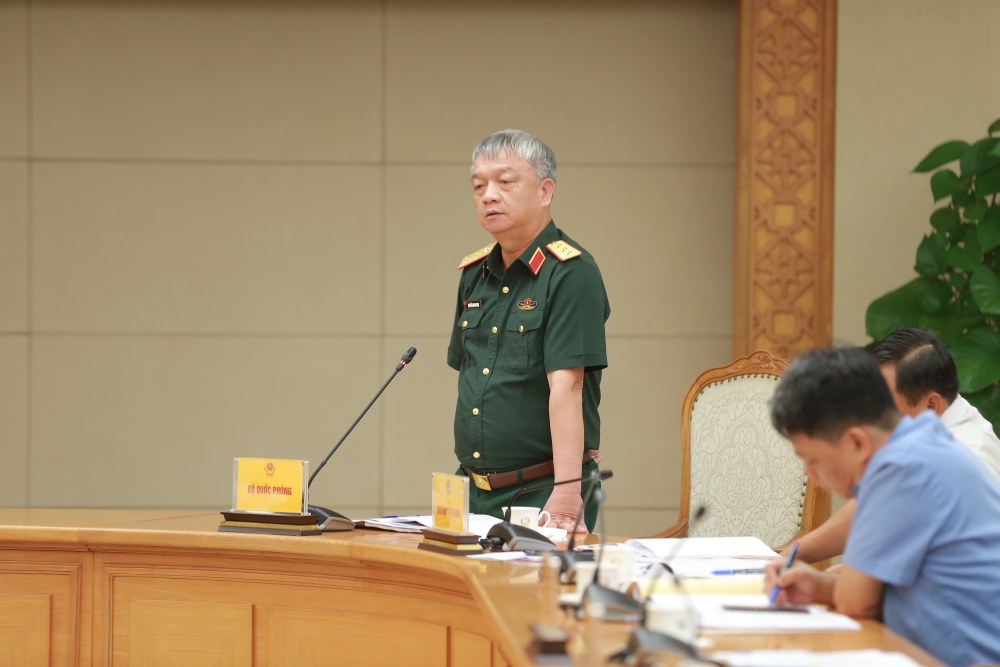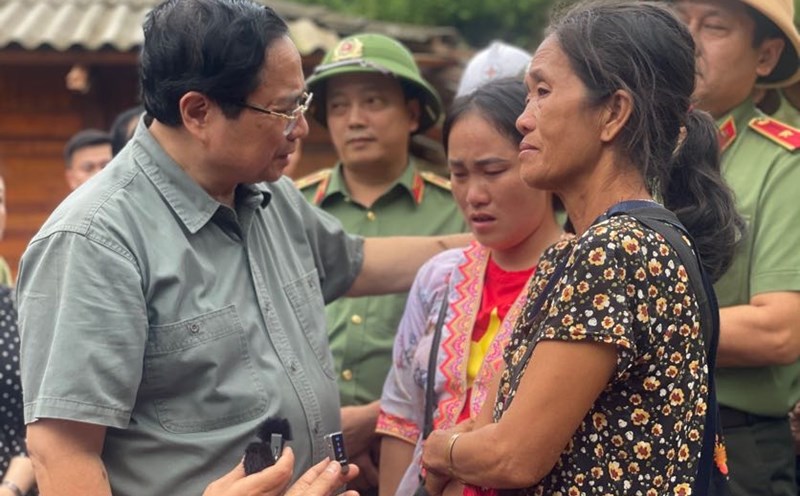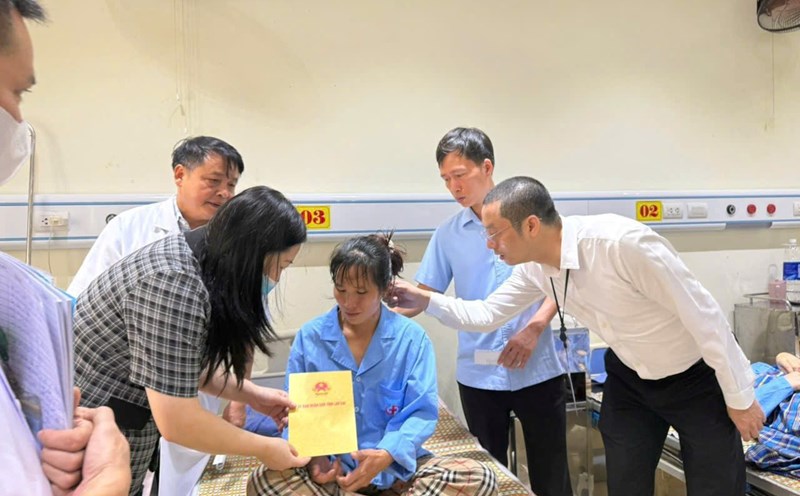On August 12, Deputy Prime Minister Tran Hong Ha held a meeting to listen to a report on the draft Project to strengthen the Party's leadership in the work of preventing, responding to, overcoming consequences and applying science and technology, innovation, and digital transformation in the field of natural disaster prevention and control in the new situation (Project).
At the meeting, Vice President of the Vietnam Academy of Science and Technology Tran Tuan Anh proposed to increase investment in a network of GPS stations, geodermic deformation sensors, and warning systems using radio waves to cover remote areas.
This is to ensure that people receive information promptly even when there is a power outage or a modern communication system is interrupted.
In addition, the Institute recommends developing specialized laboratories for in-depth research and international coordination to transfer modern technology.
Senior Lieutenant General Nguyen Quang Ngoc - Deputy Chief of the General Staff of the Vietnam People's Army - said that it is necessary to invest in appropriate and modern equipment such as specialized helicopters, light rescue vehicles that are easy to move in harsh terrain, to ensure safety for forces performing tasks as well as increase rescue efficiency.
At the same time, military and police forces also need to be equipped with suitable means for specialized tasks.

Speaking at the meeting, the Deputy Prime Minister requested to consider objective and subjective causes, especially institutional factors, and decentralization of new local authority to evaluate the effectiveness of natural disaster prevention work.
Review the model of organizing and directing from the central to local levels, build a streamlined apparatus, clearly assign responsibilities to each ministry according to the level of natural disasters, and at the same time develop operating regulations to ensure effective direction, management and response scenarios.
In socio-economic development planning, the Deputy Prime Minister requested to fully integrate natural disaster prevention requirements, avoid increasing risks from infrastructure and transport works, and ensure no harm to the natural environment.
In particular, it is necessary to carefully consider the planning of population, the arrangement of medical infrastructure, and schools in disaster-prone areas to increase the ability to proactively respond and limit passiveness when incidents occur.
The Deputy Prime Minister especially emphasized increasing investment in forecasting through basic research, building a large database, modern monitoring systems, including radar stations, satellites and remote monitoring, while promoting international cooperation to share data for accurate forecasting.
The Government leader also requested to supplement research content on earthquakes and sunscreens - potential dangers in Vietnam.
In addition, localities need to pay attention to and focus on investing in information infrastructure, energy and equipment for natural disaster response, especially in areas prone to isolation, flooding, and coastal areas; building professional rescue forces; mobilizing social investment in natural disaster prevention and control and rescue.











